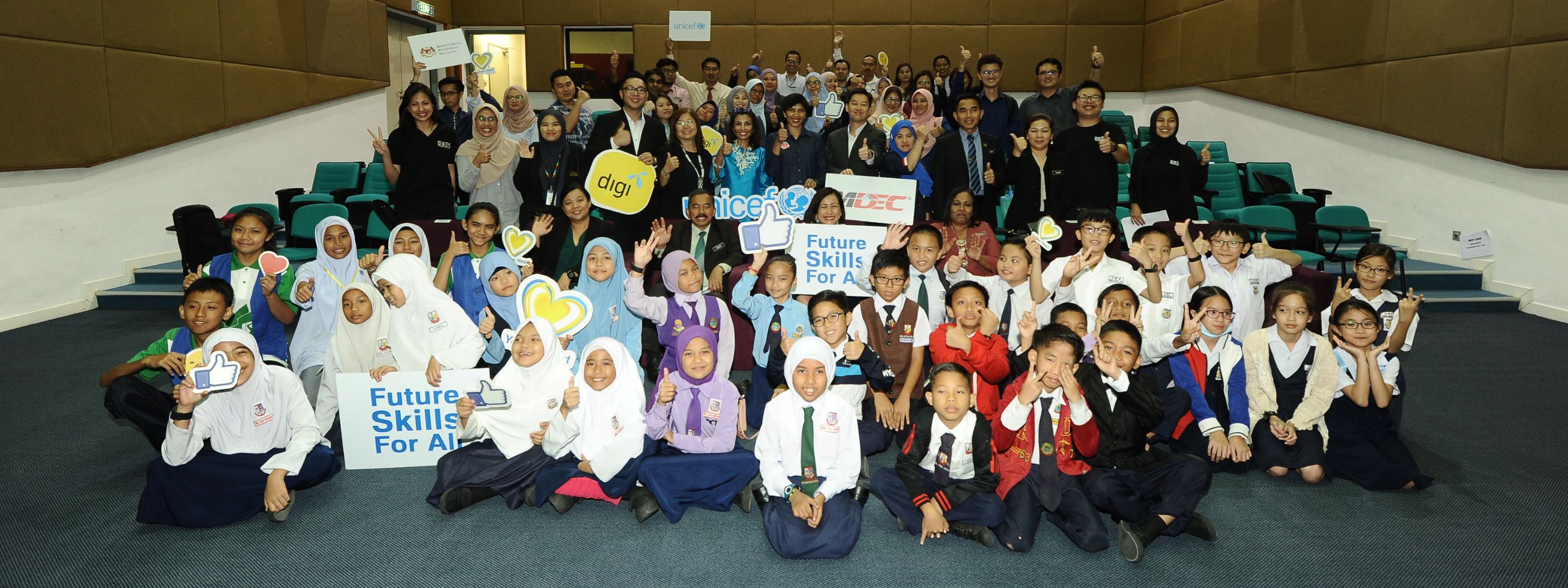
Ensuring Future Skills for All
Include
Enabling participation for all
Include means that Telenor is committed to equality, by enabling connectivity for all and driving greater societal inclusion through it.
Accomplished achievements:
Ensured no child is left behind through strategic partnership between UNICEF, Digi, the Ministry of Education Malaysia, Malaysia Digital Economy Corporation and Arus
By strengthening provision and reducing inequalities in digital skills development, the project has ensured continuity of learning for tens of thousands of children, especially during the COVID-19 pandemic
Introduction of Future Skills on TikTok, “Guru Future Skills” has resulted in a total of 2.36 million views on the videos posted
The learning system is continuously revamped and improved to further simplify user experience and facilitate learning
The Micro:bit, where students learn the basics of micro:bit programming, received global recognition. One of the key team members was invited to be a panelist in Micro:bit International Live Conference
To date, the portal had achieved 191,322 page views, 57,320 sessions, and 25,618 users. 22,354 users tried at least one quiz on the portal or enrolled in FS4A classrooms. 3,769 classrooms were duplicated
The course completion rate is 40%
46% of the students that complete the course feels that heir digital skill increased
23% of the students that complete the course increase their interest in digital skills
Telenor Group and UNICEF have announced the renewal of their global partnership. The partnership will continue to focus on initiatives that empower societies, by promoting digital inclusion, increasing connectivity, and building skills for a digital future. Future Skills for All (FS4A), an online learning platform in Malaysia, is an example of how the ongoing commitment is being realised.
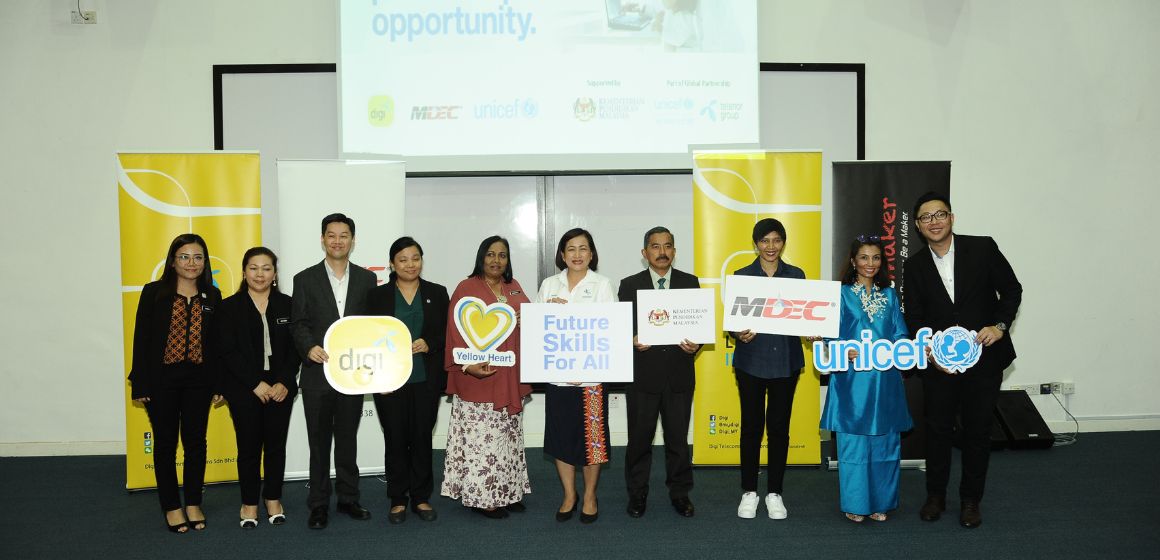
A 2012 UNESCO Report noted that Malaysia was among the first countries in the world to have pioneered a strategic ICT plan for its education system. But back in 2017, UNICEF and Digi, Telenor’s subsidiary in Malaysia, identified a gap in digital literacy among children and youth in the country. Digital skills such as coding and programming were present in the Malaysian curriculum, but only on paper. The Malaysia Education Blueprint 2013-2025 confirms that ICT usage in schools continues to lag expectations—both in terms of quantity and quality.
In support of Malaysia’s ambition to transition to a high-income country with high digital literacy, the Future Skills for All (FS4A) initiative was launched by UNICEF and Digi in 2017. Future Skills for All (FS4A) is an online learning platform that facilitates learning and makes it fun by exploring computer science to increase coding and programming skills.
“When we first launched the initiative, what children read in textbooks did not translate into actual digital skills. The goal was to develop a digital learning platform,” says Philip Ling, Head of Sustainability at Digi, Malaysia.
Ling explains how the partnership, through the combined competences of Telenor’s technical knowledge and UNICEF’s local knowledge of Malaysia, created a new curriculum. The first thing Telenor and UNICEF did was to adapt the curriculum into a video series available online, thus making the content more interesting and accessible to children and young people all over Malaysia.
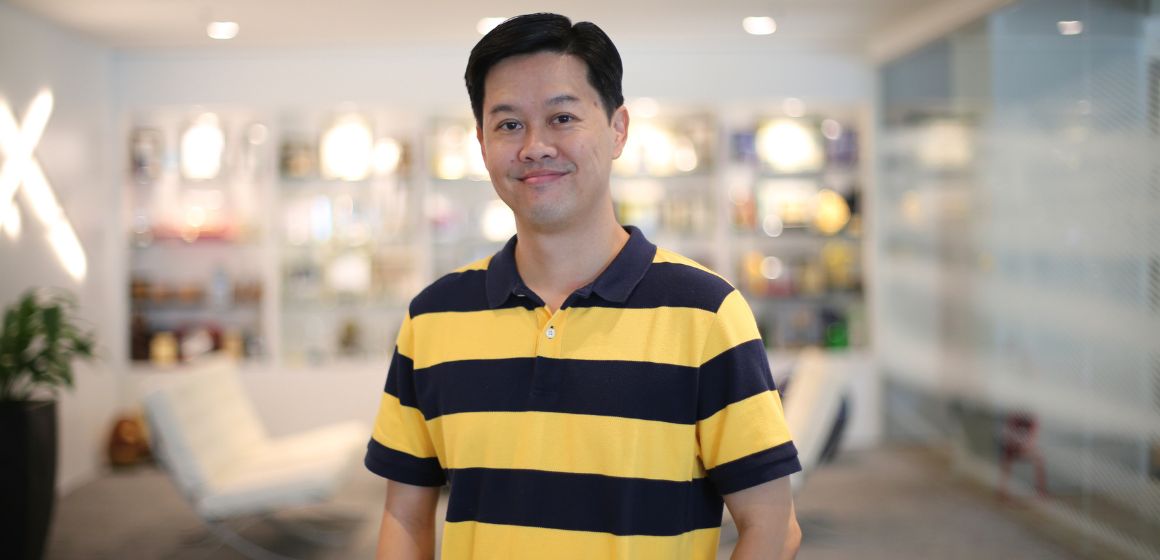
“We saw that the online platform gathered some traction, but it didn’t provide the students with any tools to increase their coding and programming skills. To gain more interest and practical learning, we introduced the pocket-sized computer micro:bit and robotics,” says Ling.
The initiative also developed courses in HTML, Python and SQL, which are programming languages that give the children hands-on experience and digital skills.
Now, the platform content is well-aligned to subjects in the Malaysian National Curriculum, which includes year 5 Design and Technology, Form 1 and Form 2 Basic Computer Science, and Form 4 Computer Science subjects.
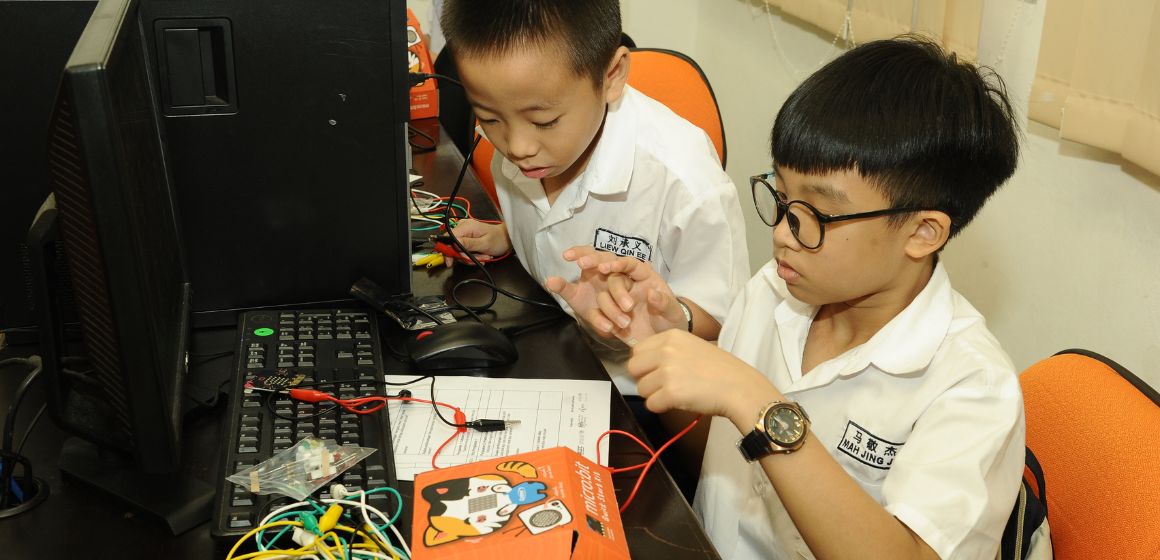
Enabling participation for all
The pandemic has accelerated the digital future, making FS4A essential for post-pandemic recovery. The initiative grows year by year with the aim to give children a possible career path.
Telenor and UNICEF’s covenant to enable participation for all makes this possible. The goal is to make the initiative accessible for more groups. Consequently, the initiative will be accessible as sign language in 2022.
“With the future workforce becoming increasingly digital, coding is undoubtedly an invaluable asset for students. FS4A enables us to make coding language more accessible for disadvantaged students including the differently abled, those in rural and remote locations and those from lower income households – providing equity in the form of opportunity to futureproof themselves. When access to digital learning expands to include more populaces, it will enhance participation and representation towards shaping a better digital society,” Ling summarises
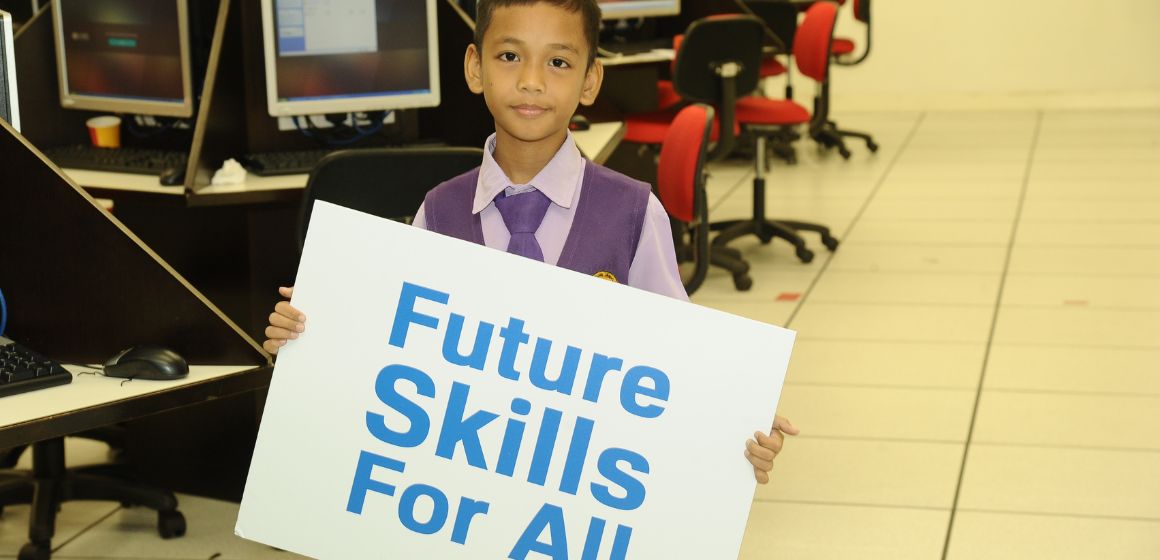
Up-skilling the teachers – the “way in” during the pandemic
The partners quickly saw that the next step was to develop training modules for the teachers.
“Typically, math and science teachers are responsible for giving students lessons in computer science, many without the required skills. Therefore, we decided to develop a course to provide them with the necessary expertise,” Ling explains.
With a hybrid of offline and online courses, the teachers gained hands-on experience with the modules before teaching it to students.
The close follow-up of the teachers became important at the pandemic hit. Schools in Malaysia closed, and the initiatives lost direct access to the children.
The teachers became the “way in” to the children. The teachers received training and the content was available online, whilst the children received follow-up and encouragement to continue with the initiative.
Ling highlights that the pandemic would have caused a larger knowledge gap among children without FS4A and teachers who knew how to use the platform. He also points to the collaboration with the Ministry of Education, that gave an .edu address to every student in the country, providing them access to the platform.
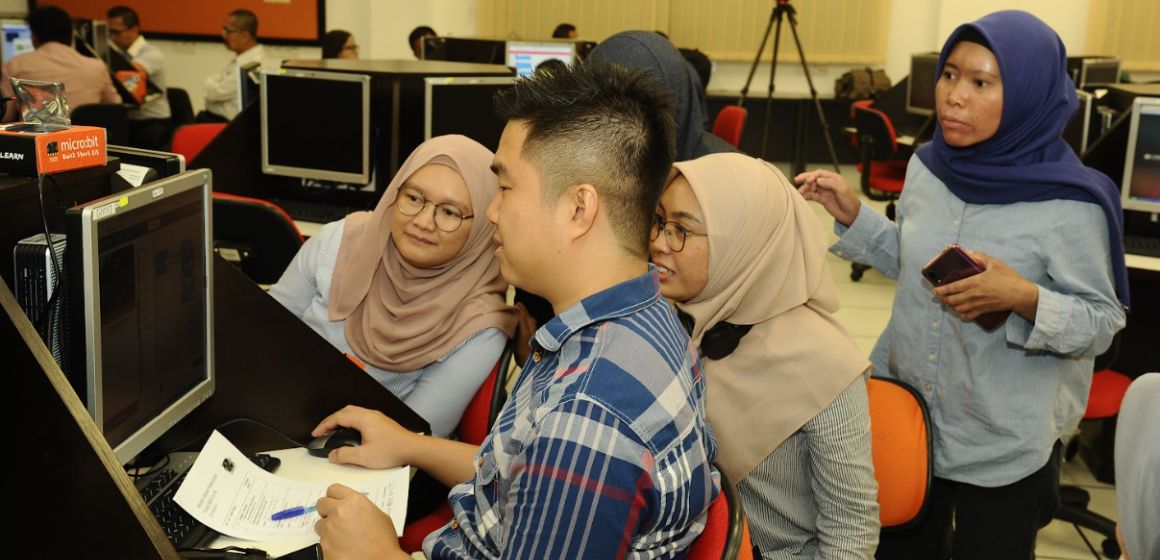
We have reached our goals, but the work is not done
As the world has been shaped by the COVID-19 crisis, the importance of mobile technology and its ability to connect people across the world, has become more evident than ever before. Initiatives such as “Online Safety Programme" in Norway and Bangladesh, “Digital Birth Registration” in Pakistan and “Future Skills for All” in Malaysia have educated millions of children, adolescents, guardians, and teachers on what the digital space has to offer.
"At UNICEF we know that bridging the digital divide and utilising digital tools are game changers. Telenor Group offers valuable insight on technology and the digital world. Mobile technology has proven to be very important to help vulnerable groups access information and educational programs that prepare them for what the advantages the digital space has to offer," says Camilla Viken, Executive Director at UNICEF Norway.
“For Telenor the partnership is important because it allows both sides to work towards empowering societies and enabling equal opportunities for all in countries that Telenor operate in,” Cecilie Heuch, Executive Vice President and Head of Group People and Sustainability at Telenor, continues.
Telenor has committed to United Nations Sustainable Development Goals (SDGs). This commitment is reflected in the company’s business strategy and purpose. Telenor see their business operations as intertwined with their commitment to society and have maintained their digital responsibility to empower societies by promoting digital inclusion, increasing connectivity, and building skills for a digital future. The UNICEF partnership is an integral part of this commitment.
“We have reached our initial goals, but the work is not done. Together, Telenor and UNICEF will continue to utilise our core expertise to reduce inequalities and empower young people in our communities,” Heuch summarises.
The Future Skills for All initiative is a partnership between UNICEF, Digi (a Telenor Group company), the Ministry of Education Malaysia, Malaysia Digital Economy Corporation and Arus.
Telenor Group and UNICEF are the driving force and funders behind the initiative. Arus is the implementing partner.